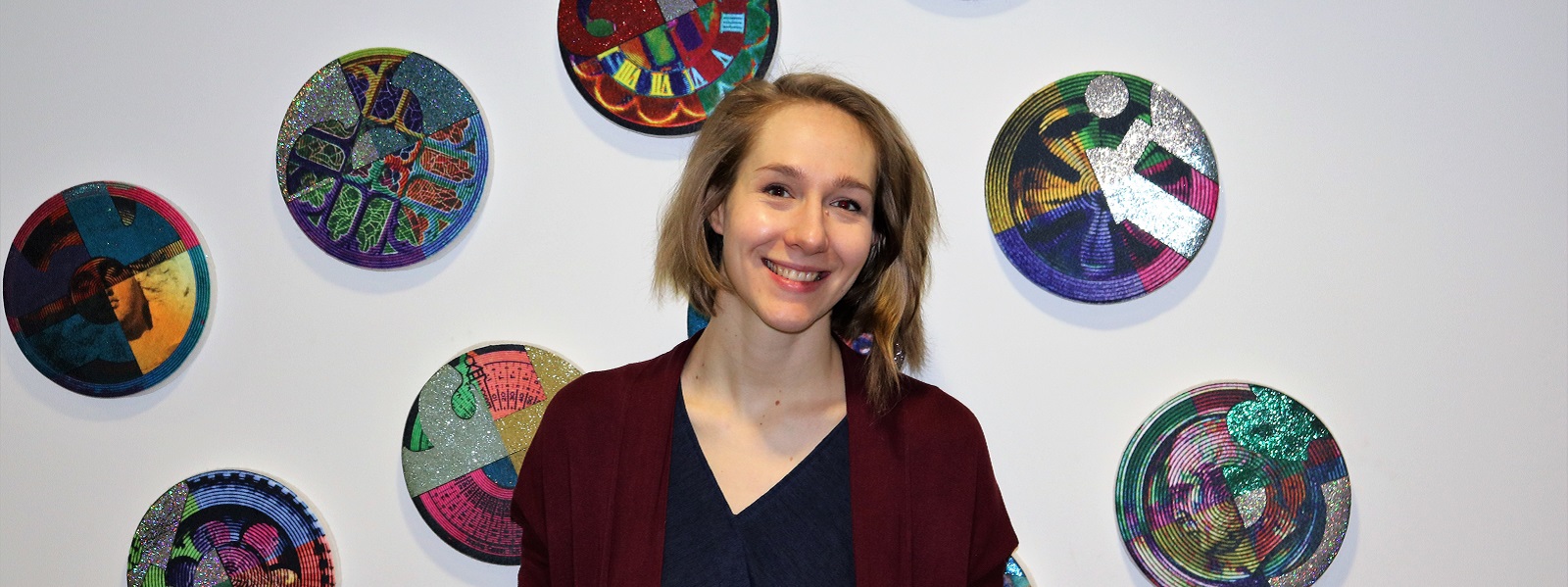Tell us a bit about your background…
I’m originally from south-eastern Pennsylvania, and I went to university in Maine before moving to Scotland for my Masters at Strathclyde in 2014. For my Masters (MRes in English) I researched political poetry written for the 2014 Scottish independence referendum. It was fascinating to see how poetry was used to convey political thought, from the polemic to the subtle, in this turbulent period of debate.
What inspired you to continue your studies at Strathclyde?
I had a great experience with my Masters, particularly working with my supervisor Eleanor Bell. While working on my Masters, I also began engaging deeply with the Scottish cultural sector, particularly with the Scottish spoken word poetry scene. I knew I wanted to remain in the UK to further engage with and research this field, and luckily Strathclyde had internal funding available for PhDs in the humanities. I applied for and received one of those studentships and began my PhD in October 2015, again working with Eleanor Bell and secondary supervisor David Kinloch.
What project(s) are you working on now as part of your PhD?
Simultaneously one of the most exciting and intimidating elements of researching contemporary spoken word poetry is that there is very little existing research into the field, particularly in the UK. In an attempt to begin remedying that gap, I conducted a major data collection project in which I interviewed 70 figures engaged in the UK spoken word field—mostly poets, but also producers, event organisers, and editors—from across the UK. I collected over 100 hours of interview material and am now finishing transcribing this material. All of these interviews and transcripts are being archived at the Scottish Oral History Centre in Glasgow, where they will be made available to the public and hopefully will serve as an important resource for future scholars and practitioners in this under-researched field.
I’ve also been able to present my research at conferences and symposiums across the UK, to a range of audiences. That’s been particularly rewarding, as again this research is relatively unique and lacks much precedent, so I get to introduce other researchers to a field they’re likely not familiar with.
How has your experience of working towards your PhD differed from previous study?
In an obvious sense, it’s the Masters times four: it’s longer, more rigorous, and requres more research, writing, and expertise. While the process is relatively similar—independent study, guided by supervisors, involving research and the writing of an novel thesis—the bar is understandably higher for PhD material. The longer time frame does mean that you have the ability to really dig deep into the field and properly develop your own ideas, which is a joy as much as it is a challenge.
Have you experienced any challenges when working towards your PhD?
It’s without a doubt the hardest project I’ve ever taken on. Even though I love my subject and enjoy developing theories related to it, four years is a long time to sustain daily interest for anything, so it can challenging at times to stay motivated. Because the PhD is a solitary project, it can also be easy to get into your own head and doubt your abilities at times.
However, I’ve benefitted from accessing the wealth of support available both at Strathclyde and externally. My supervisors have been wonderfully understanding about the challenges of completing a PhD and have given me the flexibility and encouragement I’ve needed to keep going. And there’s a great online community of PhD researchers offering shared experiences from commiseration to encouragement to remind you you’re not alone!
What would be your advice for people considering a PhD?
It’s obvious, but choose a subject that can sustain your passion through deep study and over a long period of time. Do some advanced research into your subject before applying so that you’re familiar with the existing theories and techniques in the field. Choose supervisors with a good track record not only in their own careers but with supporting students to complete their projects. Make sure that you have a solid support structure in place that you can access while you’re working; it’s so important to know that you’re not isolated. And while working on the PhD, remember that life exists outside it! Have hobbies, friends who aren’t also academics, travel if you can – your PhD should be fulfilling and important, but it’s not all there is!
What are your ambitions for the future?
After the PhD, I’m looking forward to getting my research out there through journal and book publication, talks, and various other means. It’s really important to me that this work be publicly accessible, given the often grassroots, under-researched nature of the spoken word field in the UK, so wherever possible I’d like to share my conclusions in a free, open manner.
In addition to my research into spoken word poetry, I’m an active poet myself, so I’m looking forward to continuing my artistic career alongside (and often intersecting with!) my academic one.
